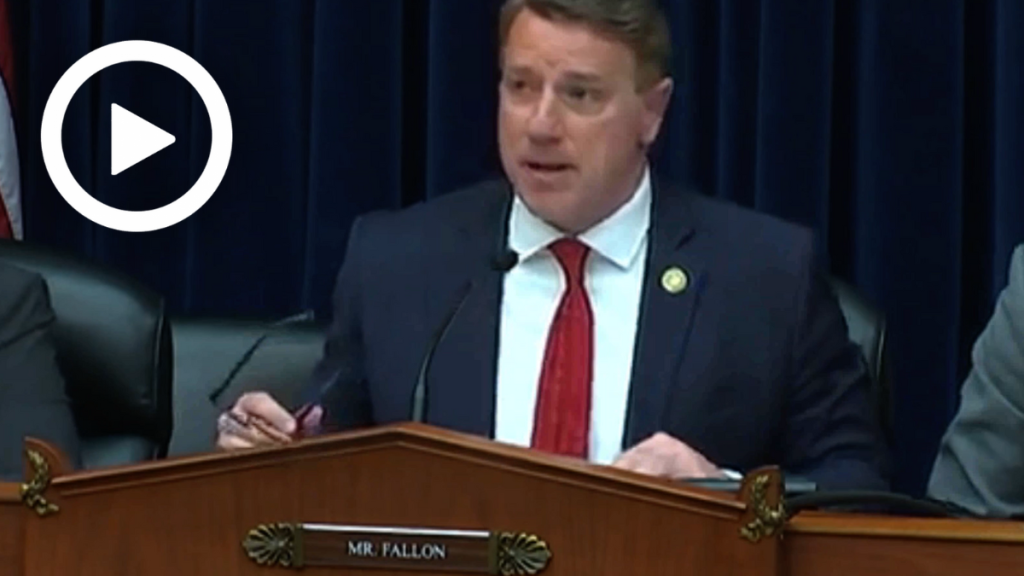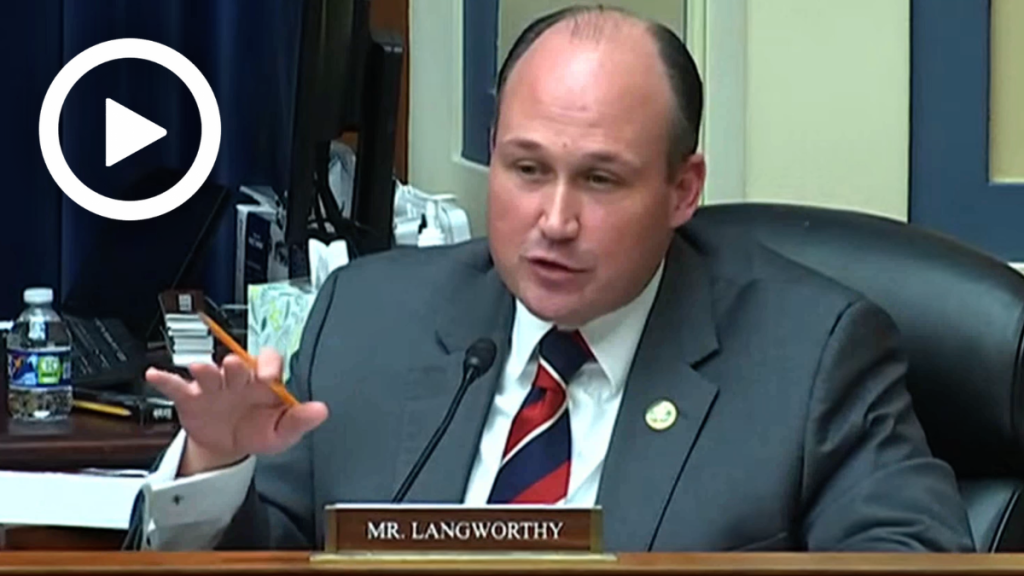Wrap-Up: President Biden’s Unprecedented Assault on American Energy Increased Costs on American Consumers and Businesses
WASHINGTON—The Subcommittee on Economic Growth, Energy Policy, and Regulatory Affairs held a hearing yesterday titled “Fueling Unaffordability: How the Biden Administration’s Policies Catalyzed Global Energy Scarcity and Compounded Inflation.” At the hearing, subcommittee members identified how the Biden Administration’s war on domestic energy production suppressed U.S. production and drove increased fuel costs and inflation.
Key Takeaways:
President Biden has conducted an unprecedented assault on our nation’s ability to produce energy by shutting down the Keystone XL pipeline, implementing a moratorium on oil and gas production on federal lands, draining U.S. oil reserves, and enacting energy policies that increased costs for Americans and killed thousands of high-paying American jobs.
- In his opening testimony, Dr. Oliver McPherson-Smith, Director for Energy, Trade, and Environmental Policy at the American Consumer Institute Center for Citizen Research said, “Since January 2021, the Federal Executive Branch of government has sought to inhibit and disincentivize the domestic production and refining of fossil fuels.”
Americans with low, middle, and fixed incomes suffer the most under high inflation and the Administration’s war on domestic energy production.
- “Since January 2021, President Biden and Democrats in Congress have taken over 125 actions aimed at shutting out the use and development of the very energy resources we need more of, not less. Suppressing domestic supply and setting America on a path towards energy scarcity has exacerbated inflation and made costs skyrocket,” testified Mandy Gunasekara, Director at the Center for Energy & Conservation at the Independent Women’s Forum in her opening statement. “Low-income Americans are the hardest hit by high energy prices. They’re being forced to choose between heating their homes and putting food on the table.”
By suppressing U.S. energy production, the Biden Administration left American energy prices vulnerable to a global energy shortage.
- “The absence of [Strategic Petroleum Reserve] oil left the American economy and American families vulnerable to international oil market fluctuations,” said Dr. McPherson-Smith.
Secure and reliable pro-U.S.-energy policies allow for lower prices and a higher quality of life for all Americans.
- “Additionally, a range of proposed or impending policies at the federal level serve to disincentivize investment in future productive capacity within much of the American energy industry,” Dr. McPherson-Smith said, warning that the Biden Administration is doubling down on their harmful policies.
Member Highlights:
Subcommittee Chairman Pat Fallon (R-Texas) asked about the Biden Administration’s policies that starved international markets of crucial fuel supply and plunged the world further into a global energy shortage, leading to higher prices for consumers for basic goods.
Rep. Fallon: “What energy policies did the Biden Administration implement that catalyzed energy price inflation?”
Ms. Gunasekara: “There’s certainly a number. I think what really set the table was the cancelling of the Keystone XL pipeline. I think most offensively it was shifting the role of the federal agencies — instead of looking at environmental problems in particular, and fixing them and making them more efficient, using the might of the federal government through its regulatory role to squeeze certain industries out of existence or to squeeze their operations in a sense to where they become so expensive that it becomes difficult to extract and utilize the very resources that we need more of.”
Rep. Lauren Boebert (R-Colo.) noted that Democrats’ proposal to ban gas stoves is yet another policy that would raise costs on American consumers.
Rep. Fallon: “What energy policies did the Biden Administration implement that catalyzed energy price inflation?”
Ms. Gunasekara: “There’s certainly a number. I think what really set the table was the cancelling of the Keystone XL pipeline. I think most offensively it was shifting the role of the federal agencies — instead of looking at environmental problems in particular, and fixing them and making them more efficient, using the might of the federal government through its regulatory role to squeeze certain industries out of existence or to squeeze their operations in a sense to where they become so expensive that it becomes difficult to extract and utilize the very resources that we need more of.”
Rep. Lauren Boebert (R-Colo.) noted that Democrats’ proposal to ban gas stoves is yet another policy that would raise costs on American consumers.
Rep. Boebert: “Do you think that the Biden Administration’s proposal to place a ban on gas stoves nationwide will reduce energy prices for people in my district?”
Dr. McPherson-Smith: “No, it’s going to force them to unfortunately have to purchase a new stove if that were to come to pass.”
Rep. Chuck Edwards (R-N.C.) warned that President Biden continues to push radical Green New Deal policies instead of taking action to lower energy prices for the long term.
Rep. Edwards: “Are green energy initiatives currently bringing down the price of energy?”
Dr. McPherson-Smith: “The price of energy still remains far above what it was when President Biden took office by about 40 percent or so. If one were to argue that the [Inflation Reduction Act] is reducing costs, we’re yet to see it in a substantial way vis-a-vis when President Biden took office.”
Rep. Nick Langworthy (R-N.Y.) asked about whether encouraging domestic energy production would reduce inflationary pressures and support good-paying American jobs.
Rep. Langworthy:“Dr. McPherson Smith, would greater domestic production of natural gas reduce the price of energy across the nation?”
Dr. McPherson-Smith: “Absolutely.”
Rep. Langworthy: “Would the jobs created by domestic production of oil and natural gas benefit Americans and the economy as a whole?”
Dr. McPherson-Smith: “I believe so.”
CLICK HERE to watch the hearing.



